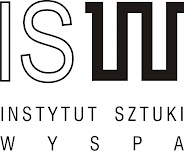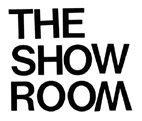Open letter
Addressing the public of Kurdistan, first of all we would like to express our greatest respect, support and gratitude for the audacity and determination of the people in Slemani at this very moment of protest. We believe that it is a transformatory event that will give the basis for a stronger self-organisation and sense of citizenship in Kurdistan in the nearest future. When the people say “no” and expose themselves to risk in the protest in the public space, when they fill the streets with their presence and disagreement, we should not take it for granted but start working from this. Kurdistan, as we know it, is not only the “the other Iraq” – a safe and economically developing Northern region. It is a country of people, who by their own courage went a long way to escape from internal conflicts, genocide and the tyranny of Saddam. There is peace and growth but there is no satisfaction and feeling of justice among the citizens. And the people are determined to say “no” again and now this “no” is happening in the framework of a democratic independent region. They say “no” because they do not have a feeling of inclusion in the governance of their own country and disagree with the social and political unbalance.
We are writing propelled by the urgency of violent events that recently took place in Slemani, when armed regional forces began to shoot their own compatriots on the streets. And we do remember and observe the sudden violent deaths of protesters and journalists. We are concerned that major Kurdish intellectuals, journalists and activists are being persecuted or detained for the critique expressed within the democratic framework. These events are not fitting certainly either to the image of “the other Iraq” or to the history of struggle for independence. It is the moment when the question that is set in the end of any revolution must be put: are we ready to accept that freedom is not only for “us” but also for everybody?
Economic processes in Kurdistan were rapid and had a strong impact on traditional social bonds, forms of living and values. As in any other country undergoing a transformatory phase, certain steps with regard to governance and economy are being introduced without looking at the social costs of those changes. And on top of all this, they lack transparency. Without including citizens themselves in the very process of change it cannot be achieved in a satisfactory manner. The chance that was given to the Kurds must be shared with everyone and not remain in the possession of political elites.
We believe that the basics in a properly functioning public sphere are:
- Freedom of speech, protest, creativity and media.
- Freedom from discrimination according to political affiliation, gender, age or sexual orientation.
- Freedom to participate in transparent decision-making processes.
- Freedom and equality in access to public funds, which includes funds for strengthening non-governmental organisations, innovation, culture, women and youth without servility to politicians.
More than a year ago we brought to Kurdistan a book by the Polish-American writer Elżbieta Matynia, “Performative democracy”, with the intention of translating it into Kurdish, which we hope will happen soon. This special book that takes on direct democracy in Poland and South Africa through the round-table discussion of representatives of all groups of society is a very good example of how democracy can be performed by its actors – the citizens, bloodlessly, in peace and with the shared understanding that we are destined to talk to each other with respect and a clear understanding of the common good.
In fear that the violence against one’s own society will grow and that civil liberties will shrink even more, we are calling for the round table of Kurdistan that, besides those in power, includes the opposition and people working for non-governmental organisations. We are calling for a transparent discussion that is public and transmitted on TV. We are calling for a peaceful way of solving the problem through which people can live in the country with a feeling of dignity and shared responsibility for the common good. It is not about being ruled but self-governance. Democracy cannot only be declared, it must be performed.
We are writing this letter because we do believe in the Kurdish people and the country we both love, work for and want to support with all possible means. But now it is a time of not just being a nation but also a society, where everyone has equal rights and access and to become a leader of such a position in the region. The overall atmosphere of the demand for social change that is spreading around in the Middle East is a sign that the momentum is now.
We all see clearly that Kurdish society needs this moment of directness, of argument, of diversity that is not a threat but a potential.
Hiwa K, Kurdish artist, Berlin, Germany
Aneta Szylak, curator, Director of Wyspa Institute of Art, Gdansk, Poland
Estrangement Project
February 25, 2011










